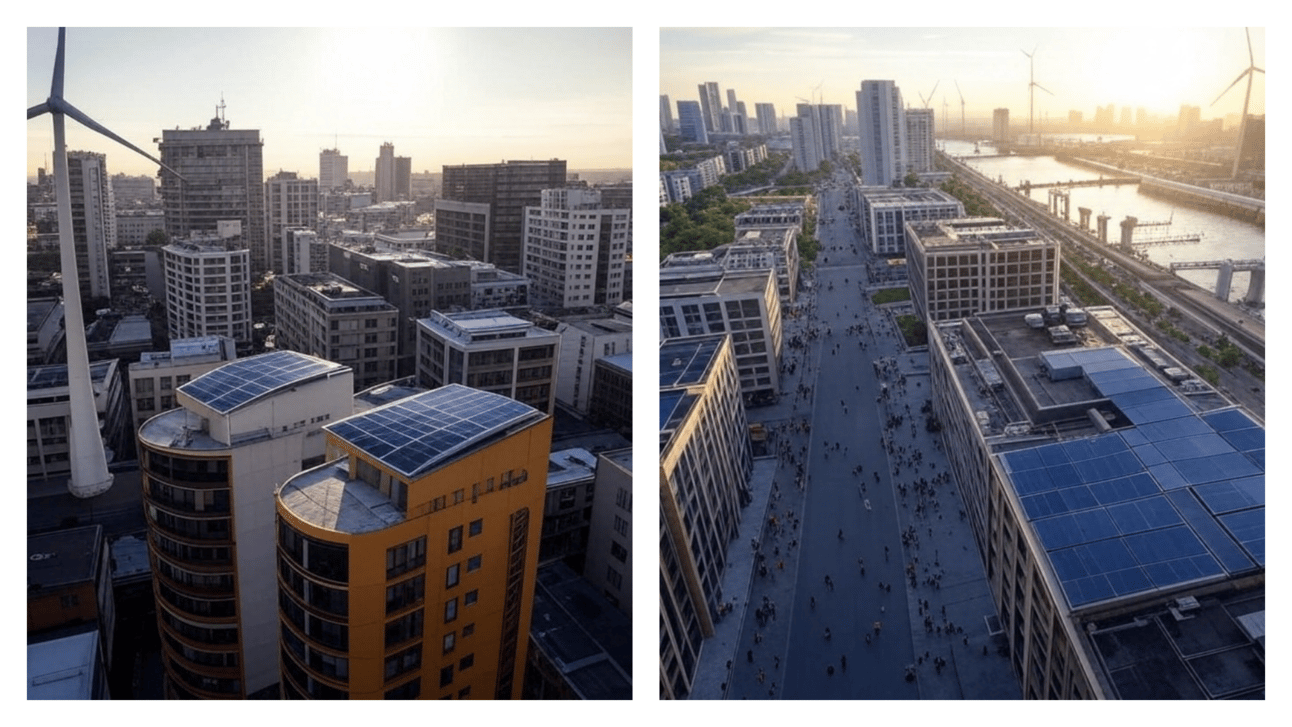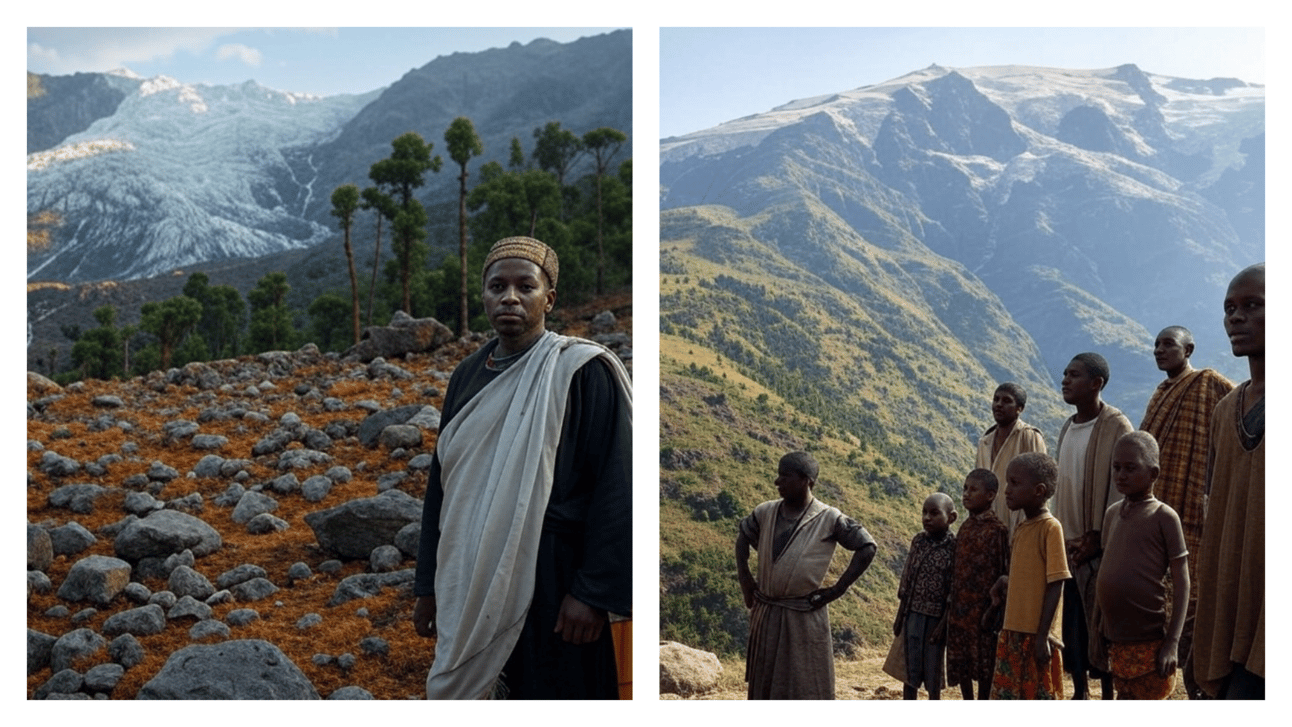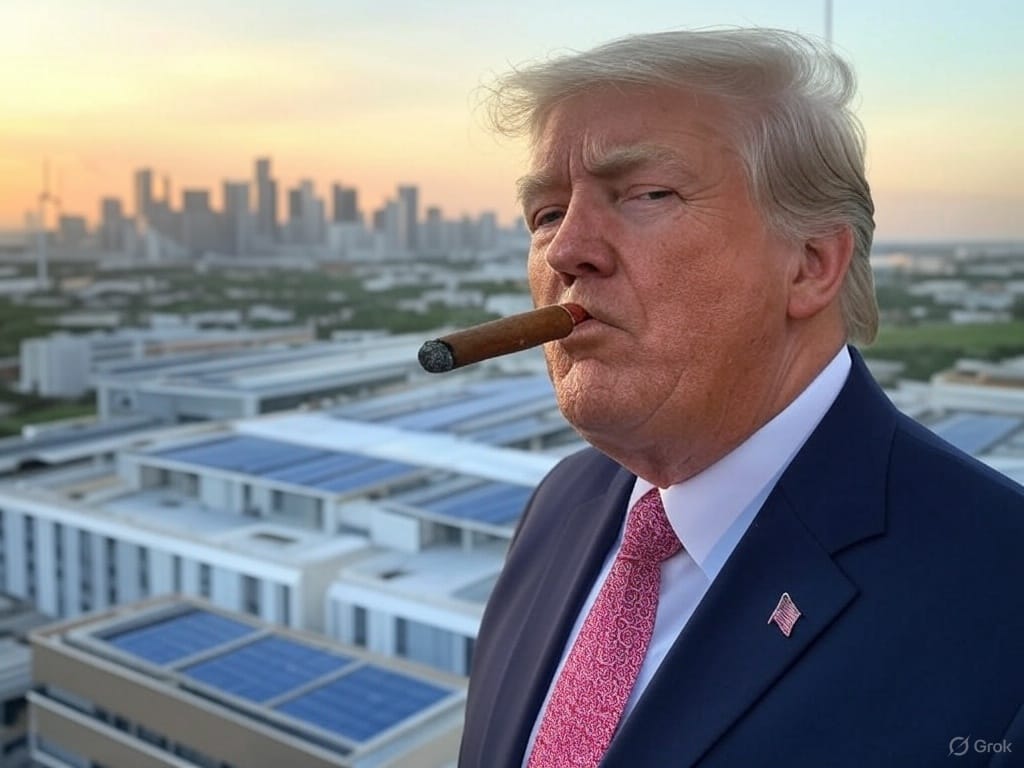- ClimateOS Africa.
- Posts
- Issue #7. TLDR: Village Capital Report: A blueprint for Africa’s sustainable growth.
Issue #7. TLDR: Village Capital Report: A blueprint for Africa’s sustainable growth.
The report highlights how startups can tackle Africa’s biggest climate challenges in five key countries.
🌍 Climate OS: TLDR – Issue 5
"Your weekly dose of Africa’s climate and mobility news, served with a side of wit and a dash of hope. Let’s dive in!"
🔥 TODAY’S HOT TAKES
Here’s what’s brewing in Africa’s climate and mobility space this week:
Village Capital Report: A blueprint for Africa’s sustainable growth.
CEI Africa Invests €1.1M in MPower: Solar energy solutions for underserved markets.
Climate-Induced Migration in Africa: How laws can enable free movement.
Climate Change in African Mountains: Greater impacts than previously thought.
Nigeria Seeks to Host COP32: Lagos throws its hat in the ring.
10% of Global Climate Finance at Risk Under Trump: Aid cuts could jeopardize funding.
🚀 THE BIG STORY: VILLAGE CAPITAL REPORT – AFRICA’S PATH TO SUSTAINABILITY

An African city powered by renewable energy. (Image generated by Grok)
In March 2025, Village Capital, in collaboration with Norad, released a groundbreaking report titled Empowering Africa’s Sustainable Future. The report explores the transformative potential of startups in addressing Africa’s most pressing climate challenges across five countries: Ghana, Kenya, Malawi, Mozambique, and Tanzania.
Key Findings:
Cleantech and Deeptech Innovations: Cleantech now accounts for 33% of startup funding in Africa, with over 300 deep-tech startups raising $3 billion. However, infrastructure gaps and regulatory hurdles remain significant barriers.
Debt Financing on the Rise: Debt financing has surged from 4% in 2019 to 26% in 2023, reflecting a shift toward alternative funding mechanisms.
Fragmented Ecosystems: Entrepreneurial ecosystems are often fragmented, delaying the transition from ideation to commercialization.
Investment Gaps in Climate Adaptation: Less than 10% of global climate finance is allocated to adaptation, leaving vulnerable communities without resources. Africa needs $2.7 billion annually by 2030 to address its adaptation needs.
Country-Specific Insights:
Ghana: A hub for sustainability-focused startups, but faces financing and regulatory challenges.
Kenya: A leader in renewable energy, with projects like the Lake Turkana Wind Plant, but struggles with regulatory complexities.
Malawi: Focused on renewable energy and climate-smart agriculture, but hindered by financial instability.
Mozambique: Leveraging its coastline for blue economy growth, but slowed by poor infrastructure.
Tanzania: Making strides in renewable energy and food security, but limited by fragmented ecosystems.
The Role of Startups and ESOs:
Startups are at the forefront of Africa’s sustainability efforts, but they require strong ecosystems to scale. Entrepreneur Support Organizations (ESOs) play a vital role by providing access to social and financial capital, technical expertise, and mentorship.
The Takeaway:
Africa’s sustainable growth potential hinges on collaborative efforts, patient capital, and supportive ecosystems. With the right policies and investments, the continent can navigate its challenges and lead the way in sustainable innovation.
☀️ CEI AFRICA INVESTS €1.1M IN MPOWER
CEI Africa has invested €1.1 million in MPower Ventures AG, a climate fintech company focused on solar energy solutions for underserved African markets.
Why It Matters:
MPower has sold over 50,000 solar products across seven African countries, including Zambia, Cameroon, and Ghana.
The funding will help MPower expand its distributor network, diversify its product portfolio, and enhance financing solutions for small and medium-scale solar infrastructure.
The Bigger Picture:
This investment could accelerate solar adoption in West and Southern Africa, addressing unreliable grid infrastructure and benefiting households, SMEs, and agribusinesses.
🌍 CLIMATE-INDUCED MIGRATION IN AFRICA
Climate change is reshaping Africa’s migration landscape, but existing international laws leave millions unprotected.
Key Insights:
A World Bank Report estimates that climate change could displace 85 million Africans internally by 2050.
Regional free movement agreements, like IGAD’s 2020 Protocol, offer a framework to protect climate migrants by allowing visa-free entry and extended stays during disasters.
The Takeaway:
Africa needs proactive legal innovation to safeguard the lives and dignity of climate migrants. Strengthening regional agreements and raising public awareness are critical steps.
🏔️ CLIMATE CHANGE IN AFRICAN MOUNTAINS

African Mountains. (Image by Grok).
A new study from the University of York reveals that climate change is impacting mountain communities in equatorial Africa more than previously thought.
Key Findings:
Farmers report increased temperatures, reduced fog, and unpredictable weather patterns, leading to reduced crop yields and food insecurity.
Communities are adapting by diversifying livelihoods, but a one-size-fits-all approach doesn’t work.
African MountainsThe Bottom Line:
Localized adaptation strategies are urgently needed to mitigate the socio-ecological and economic impacts on mountain communities.
🇳🇬 NIGERIA SEEKS TO HOST COP32
Nigeria has expressed its desire to host COP32 in Lagos in 2027.
Why It’s a Big Deal:
Nigeria is the only African country to have enshrined a net-zero target in law, aiming for net-zero by 2060.
Hosting COP32 would position Nigeria as a leader in climate action, despite being the continent’s biggest oil producer.
The Takeaway:
If selected, Nigeria could use COP32 to showcase its climate leadership and drive global collaboration on sustainability.
💰 10% OF GLOBAL CLIMATE FINANCE AT RISK UNDER TRUMP
Trump’s development aid cuts could jeopardize up to 10% of global climate financing.
Why It Matters:
The USA accounted for over 8% of international climate finance in 2024, with USAid providing a third of the country’s climate finance.
Trump’s executive orders could shift funding toward US commercial interests, leaving frontline communities underserved.
The Bottom Line:
The global climate finance landscape is at risk, and Africa could bear the brunt of these cuts.
🍵 MEME OF THE DAY
"Donald Trump after his ill-advised policies that put climate finance is at risk"

"Enjoying ClimateOS: TLDR? Share it with a friend and help us grow! 🚀"
This edition of Climate OS: TLDR keeps you informed, entertained, and ready to tackle the week. Let’s keep the momentum going! 🌍✨